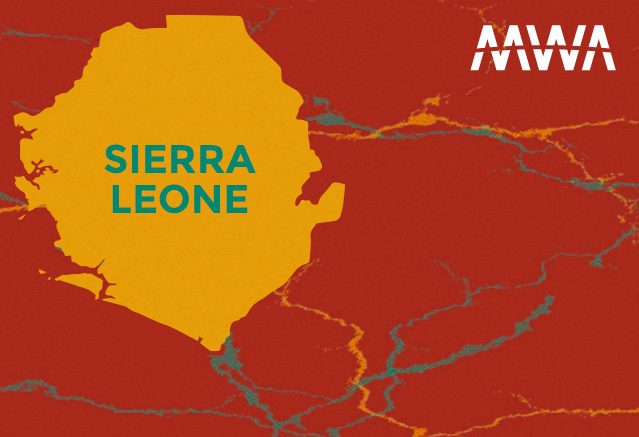
From False Promises to Forced Labor: The Journey of Migrant Domestic Workers from Sierra Leone to Lebanon
Introduction
Sierra Leone has for decades had one of the lowest UN Human Development Index, with alarming social indicators. Well over half of its population lives in poverty, and according to the government’s estimate, at least 10% of the population live with diverse forms of social and economic vulnerabilities.1 The country was one of the epicentres of the Ebola outbreak in 2014-2015, and survivors have no access to psychosocial support, continuous medical observation, or other special needs. Prior to the Ebola epidemic and COVID-19 pandemic, Sierra Leone had still struggled with the fallout of the civil war that ravaged the West African country between 1993 and 2002. In the Sierra LeoneLebanon labour migration corridor, wars and their aftermath are a commonality among both Sierra Leonean migrants and their Lebanese employers. The violence experienced seems to have had an impact on both the employer and the worker – the former are those who grew up during Lebanon’s civil war (1975-1990), and the latter during Sierra Leone’s (1992-2002).
This report, part of MWA’s In Focus research series2 , seeks to understand the environment from which Sierra Leonean women migrate and how the cards are stacked against them even before they leave their country. More importantly, the report aims to shed light on how Lebanon’s Kafala system not only exploits those existing vulnerabilities, but aggravates them further by systemic indifference, including nonexistent access to justice. Most of those interviewed for this report travelled to Lebanon between 2018 and 2022, while the Arab nation was grappling with its own economic and political crisis. This has significantly impacted migrant domestic workers (MDWs), exacerbating their already vulnerable situation and the precarious conditions under which they live.
THE KAFALA SYSTEM – A SYSTEM OF EXPLOITATION
The Kafala system that governs the migration, recruitment, and employment of migrant workers is a complex of laws and practices that tie the worker’s residence and work permits to the sponsor. In the case of MDWs, the majority of whom are women, the sponsor is an individual employer, the workplace is a household, and there is no access to the scant protections of the labour law from which domestic workers are excluded.
The Kafala system allows for the proliferation of human rights abuses. It promotes a paternalistic relationship between the sponsor and the worker, giving employers a sense of possession and control over the worker. Employers pay between US$2000 and US$3000 as recruitment fees3 and interpret payment for the services of an individual as a payment for the individual itself. Having paid a rather steep recruitment fee, employers often argue payment of promised salary is optional or flexible, as workers who were interviewed recount.
MDWs who escape abusive households usually do not have their identity papers and find themselves classified as irregular migrants subject to arrest, detention, and deportation as the Kafala system forbids them from leaving their employer without permission. This results in many MDWs being treated as criminals rather than as victims. Employers can submit a complaint to General Security if the worker has left during their contract period, and General Security will cancel the worker’s permit based on a number of possible residency offences, such as changing the nature of one’s job or moving to another employer before having obtained prior approval from the Ministry of Labour. This practice puts many MDWs at risk for detention and deportation.4
A number of human rights bodies have highlighted the concerns related to the Kafala system. Although often perceived or presented as a labour migration pathway, the Kafala system facilitates a form of state-backed forced labour, with many migrant workers ending up in situations where they were trafficked. For example, in 2021, the UN Committee on the Elimination of Racial Discrimination raised concerns about the continued discrimination and violence permitted under the Kafala system in Lebanon towards migrant domestic workers. It noted: “The Kafala system was a source of discrimination and violence, and it must be abolished.”5 Earlier in 2011, the Special Rapporteur on Contemporary Forms of Slavery carried out a visit to Lebanon and noted the increasing reports of domestic servitude. More recently, following a country visit, the UN Rapporteur on Extreme Poverty and Human Rights also called for the abolition of the Kafala system in Lebanon.
Despite a persisting economic crisis and rising geopolitical tensions, migrant workers from Sierra Leone and other countries continue to arrive in the hopes of a better life. Yet, as this report will demonstrate, structural vulnerabilities in Sierra Leone contribute to heightening the risk of exploitation by deceptive recruiters, and the Kafala System provides a framework that allows for widespread abuses, including forced labour.
The findings of this report establish that by both international and national standards, all of the women interviewed were victims of forced labour, to a large degree enabled by Lebanon’s Kafala system, and that many of them were also victims of human trafficking. Lebanon is in grave violation of its international legal obligations by failing to protect migrant domestic workers in the country.
